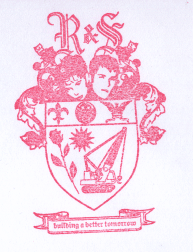It is far easier for a poor black kid to grow up and become a doctor or lawyer than it is to become a professional visual artist. Statistics, logic and achievement can often overcome the barriers in many professional fields. In the arts however, social biases and a lack of empathy with the artist and their work makes professional barriers almost completely insurmountable. An emotional and intellectual connection between the gatekeepers (gallery owners, museum curators, patrons, magazine editors) and the artist is required for success. One would think that in the supposedly progressive field of Art, people would make an effort to relate to the work of people who don't look like, talk like or think just like themselves. In fact, the Art world is the industry MOST guilty for excluding minorities. It is excessively upper-middle class, male centric and white. It's not an obvious sort of racism or sexism - it's simply a club mentality. Like some tired, white high-school English teacher saying that great literature "needs to be universal," while coincidentally his list of 'universal' novels is overwhelmingly written by dead white men. The art world fails to acknowledge, let alone confront, how it's education and social standing skews perception of art. It mistakes what it relates to as the benchmark for quality.
While I have enjoyed the New Yorker's New Orleans Journal - which definitely shows compassion for my home city, I think it is completely obnoxious and hypocritical for them not to have hired someone who already lives and writes there (which there are plenty of). A simple thing The New Yorker could have done to help New Orleans would have been to give someone who lives there a job. Their compassion for the city is betrayed by their lack of empathy and their perpetuation of an industry of exclusivity.
The truth is, media and art success in New York happen because of what parties one has gone to and/or who one went to school with (or slept with). Its a perfectly reasonable method - after all, hunting is hard work. Also, moving to NY and doing what it takes illustrates a persons ambition - a good thing. The problem is that only a certain kind of person, from a certain kind of background can make it into the situation where they can then try to make a career. The increasing expense of living in New York is only exacerbating this situation. To combat exclusion, economic oppression, racism and sexism I do think it is the job of curators, editors and art directors to hunt for talent, not just take who flows through their NY circles. They must continuously question their own standards and methods. They must have empathy.
p.s the authors of the New Orleans Journal are writing a book about their experience - don't buy it - buy this instead: Coming Out The Door For The Ninth Ward by Nine Times Social and Pleasure Club
Categories
- Archive
- Art/Design Magazines
- Books
- Car Magazines
- Comics
- Entertainment Magazines
- Events
- Fashion Magazines
- Flyers
- Food Magazines
- Gallery
- History
- Home/Architecture Magazines
- IN BRIEF
- Interviews
- Lifestyle Magazines
- Linkophelia
- Literary Journal
- Magazine Rack of the Week
- Magazines We Love Roundup
- Make Your Own
- Objects
- PDF magazines
- PF Collection
- Photography Magazines
- Places
- Posters
- Ramblings, Rants and Redundancies
- Resource
- Small Press
- Special Issues
- Travel Magazines
- Websites
- Zines-Handmade
- Zines-Printed






Comments (1)
Perversely - as the definition of "Art" has been broadened to include a greater-and-greater number of objects - power within the "Art World" has tended to be gathered by fewer-and-fewer hands.
More so now than ever, objects depend upon the context in which they are exhibited.
And context in the "Art World" implies a museum or gallery space.
Marcel Duchamp to Andy Warhol to Jeff Koons: Success has depended upon an ability to manipulate the social machinery of institution and press - presupposing some acceptance of the manipulator.
"flows through"
http://news.bbc.co.uk/1/hi/entertainment/arts/4059997.stm
I think that you are correct, Mr. Mcginnis. And while the appearance of democratic equality is manifest, it's nothing more than an appearance. Questioning artistic value leads almost inevitably to a more general inquiry into the origins of our moral valuations; it follows that parties who enjoy a position of advantage in the current order are unlikely support any "real" change...
Posted by Paul | June 10, 2007 4:19 PM
Posted on June 10, 2007 16:19